Art World
Brian Eno’s New Collective Wants to Save the World From Climate and Political Collapse
Hard Art brings together artists, scientists, activists, and other experts to inspire and motivate.
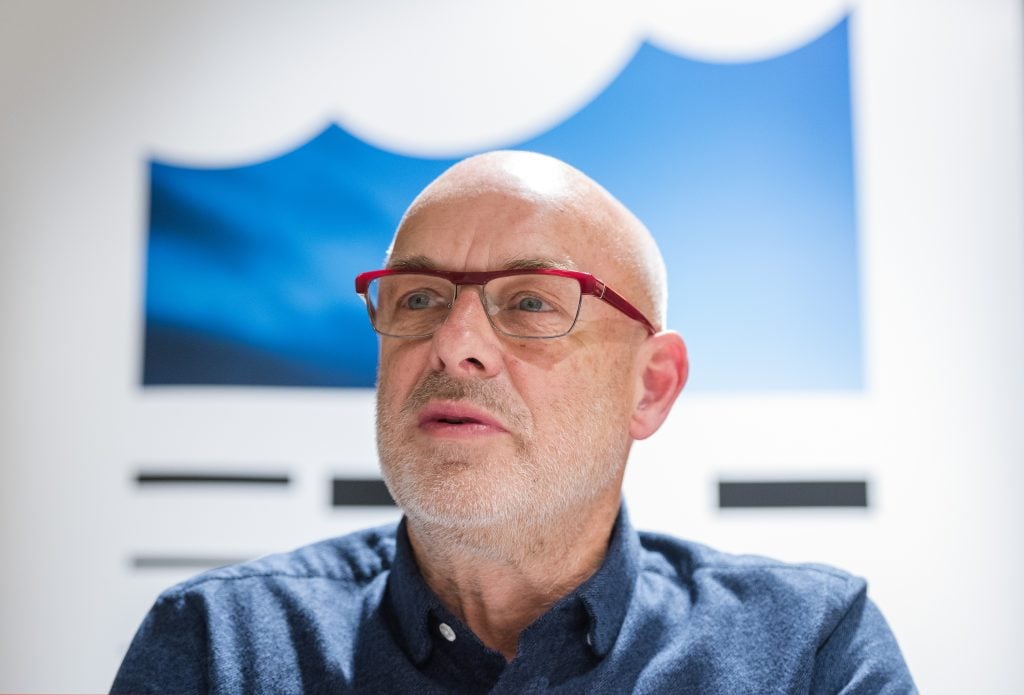
Hard Art brings together artists, scientists, activists, and other experts to inspire and motivate.

Brian Boucher

The globe is heating and the seas are rising. Democracy is on the run in the U.S. and abroad. And a collective of artists, scientists, designers, activists and others maintains that those two baleful developments are inextricably bound together, and they want to join forces to do something about it. The goal of their collective, Hard Art, is to “foster interdisciplinary collaboration, in order to create cultural disruption, that supports a strategic ecosystem for change.”
Hard Art is led by musician, artist, and climate activist Brian Eno (who, among other initiatives, is crediting the Earth as a songwriter on his releases, with the planet’s earnings going to his climate charity EarthPercent). Among the dozens of other participants are visual artists like Jeremy Deller, Cornelia Parker, and Gavin Turk, as well as writer Jay Griffiths (author of the fictionalized Frida Kahlo biography A Love Letter From a Stray Moon), actor/director Andrea Arnold (who directed the beloved TV series Transparent and I Love Dick), designer Es Devlin, writer Jon Ronson (So You’ve Been Publicly Shamed), filmmaker Asif Kapadia (director of the Amy Winehouse biopic Amy), and rapper Louis VI.
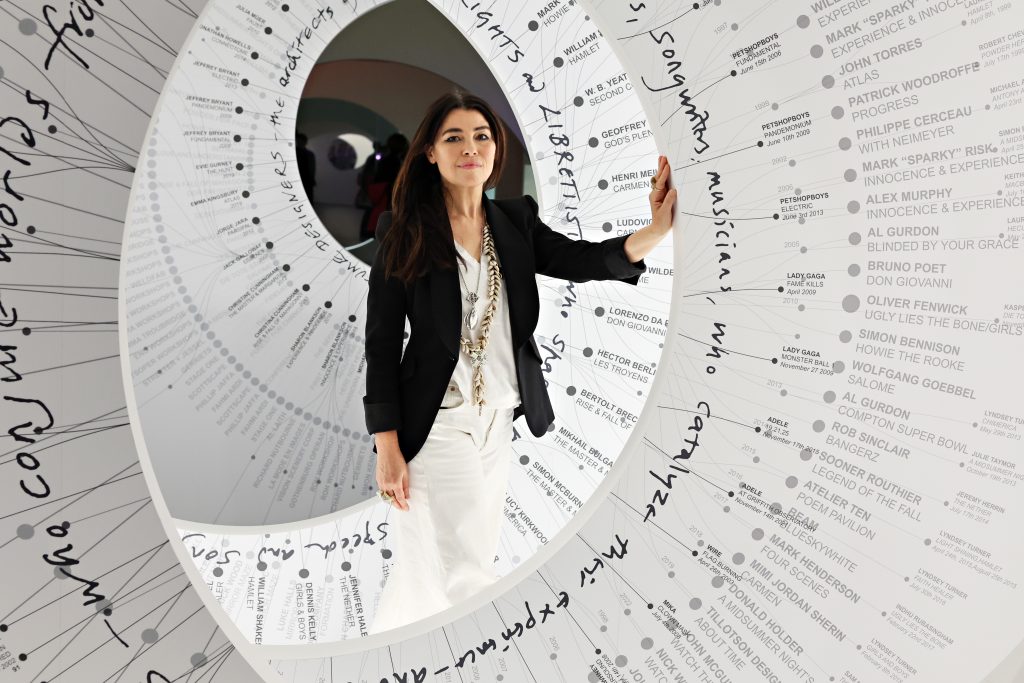
Es Devlin, 2023. Photo: Cindy Ord/Getty Images.
Climate collapse and the threat to democracy are “indivisible” in Eno’s view.
“Addressing the climate crisis is going to be immensely difficult, but until we face up to the crisis in our democracy we won’t be able to make the bold and brave moves required,” said Eno. “If we don’t try to engage everybody in that process we can’t expect people to embrace the challenge: an undemocratic process will divide us rather than unite us.”
“That’s why new forms of democratic participation like Citizens’ Assemblies are so compelling,” he added. “Citizens Assemblies and other new forms of participatory democracy have shown that ordinary people are able to make good decisions, because they aren’t beholden to the whims and interests of media moguls or party politics like most politicians seem to be.”
The whole idea is to take people out of their professional silos and bring them together at Eno’s studio to discover how, though they might be speaking in different languages, they are trying to solve the same problems. To that end, the highly interdisciplinary group also includes participants like faith leader Liz Slade, University of Westminster politics professor Graham Smith, games designer Tristan Clark, and philosopher and Durham University professor Carmody Grey.
In a video on the collective’s site, Eno talks about how, despite our culture’s obsession with individual genius, any individual creator is part of a community. He coined the word “scenius,” for the genius of a whole scene. “I think that’s really a much better way of looking at things,” he said.
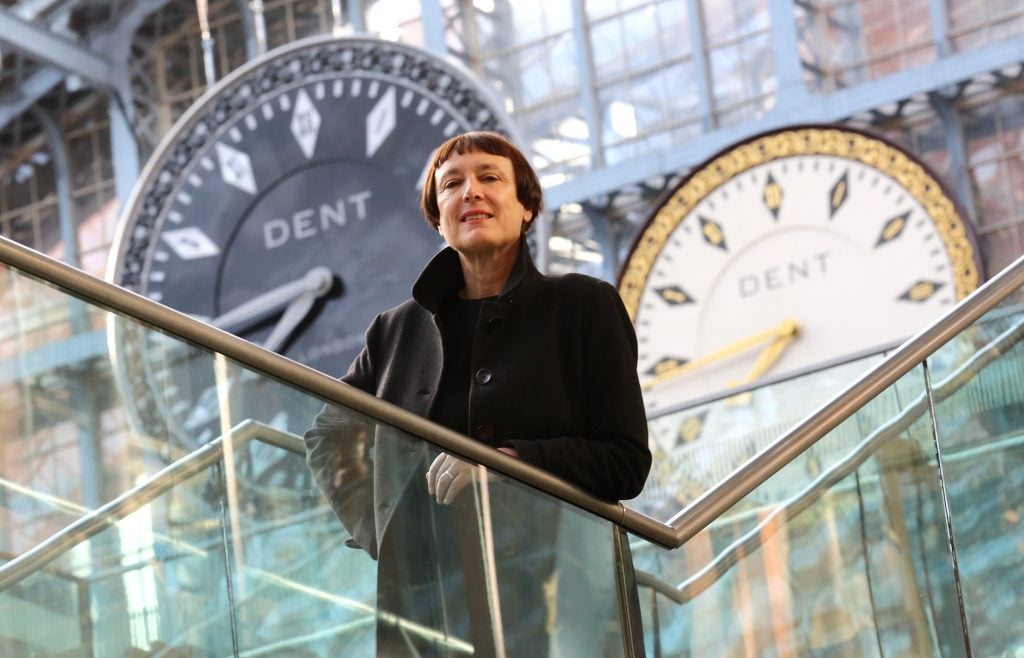
Cornelia Parker, 2015. Photo: Tim P. Whitby/Getty Images for Terrace Wires.
The artists involved have various reasons for signing on. “I joined Hard Art because I heard there was wine and dancing,” said Parker. On a more serious note, she added, “I also joined as a concerned citizen with a 22-year-old daughter. I want her to have the same chances as my generation.”
They have also found various ways to contribute. “I showed the group one of my short films, THE FUTURE (Sixes and Sevens) [2023], where children answer questions about what they would like to be when they grow up, what the future might be like,” said Parker. “It is loosely based on Michael Apted’s documentary series 7UP, which films the same children at 7, 14, 21, 28, 35, 42, etc… What will befall my group of children at the age of 42?”
The group has been hanging out together at Eno’s studio a couple of times a month since late 2022. Presentations and discussions have led to projects like a manifesto in the form of a zine, The Work WE Need to Do (designed by Deller); an open letter supporting the HSBC 9, a group of Extinction Rebellion protestors; and the Fête of Britain, a four-day “celebration of the imagination.”
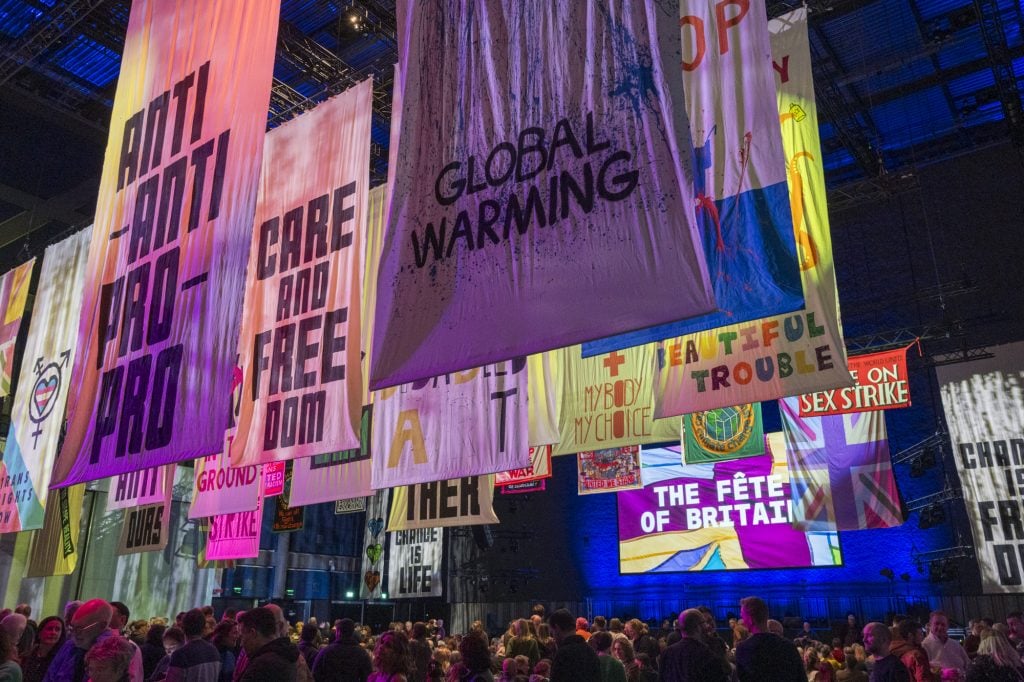
Fête of Britain, February 2024, Manchester, Factory International. Courtesy Hard Art.
The zine, and future Hard Art releases, will be distributed on a new platform, Metalabel, that was co-founded by Yancey Strickler, a co-founder and former CEO of Kickstarter.
Metalabel, for its part, supports artists creating in various mediums, including, so far, clothes, magazines, and books, but with many other kinds of projects to come. Strickler said that the new platform came out of his reading two books—Our Band Could Be Your Life: Scenes from the American Indie Underground 1981-1991, about the hardcore and punk music scene, and a history of the Royal Society, founded in the 17th century in London to foster scientific inquiry. In view of their communal and independent spirit, DIY record labels and this early research organization might not be as different as they seemed, he thought. Could he create an organization, he wondered, that would be a bit like a record label?
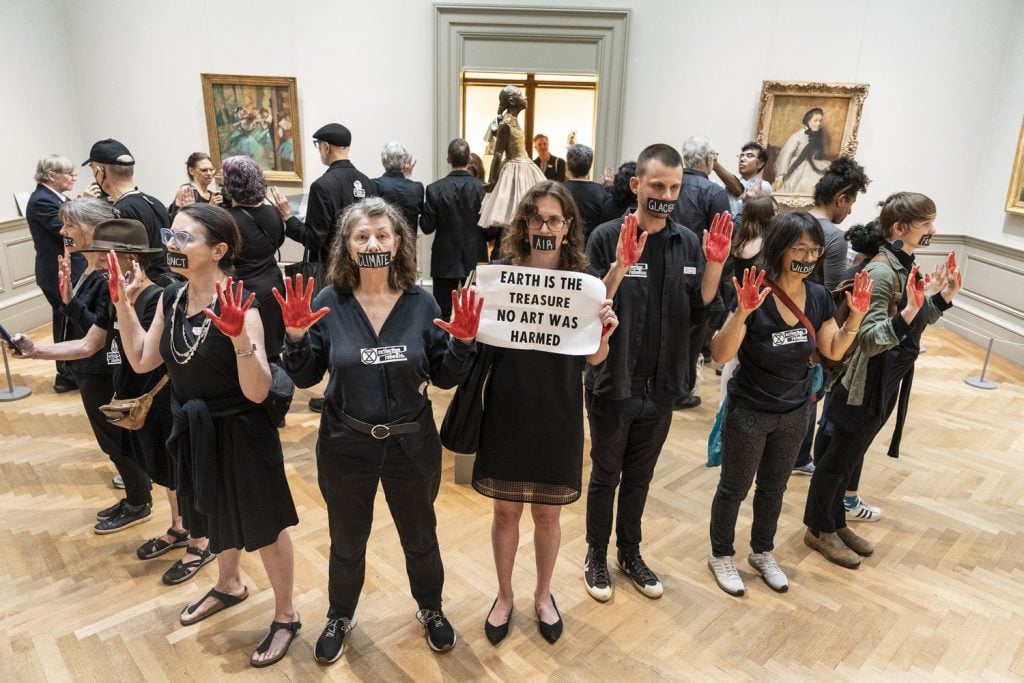
Members of activist groups Extinction Rebellion and Rise & Resist protesting at the Metropolitan Museum of Art on June 24, 2023. Photo: Graham MacIndoe.
Next came conversations with the founders of Extinction Rebellion, the direct-action climate activism group that has made headlines around the world (including by attacking artworks), often with a plan to get arrested, about how they could produce generative work that would engage and stimulate people rather than landing them in a jail cell. When the Extinction Rebellion people came together with Eno, Hard Art was born.
It would be easy for cynical observers to tell artists to stay in their lane, but Strickler thinks that in addition to economists, policy experts, scientists and the like, creative people of all types are exactly what is needed in the face of urgent challenges.
“Everything today is about story, about attention, about making people feel something fully enough to do something about it,” Strickler said. “Extinction Rebellion has had a lot of success and been controversial for the way they generate attention for the things they care about. There is a sense that we all have a responsibility to try to do something.”
Eno, too, feels that artists have a particular skill to share when it comes to addressing urgent problems.